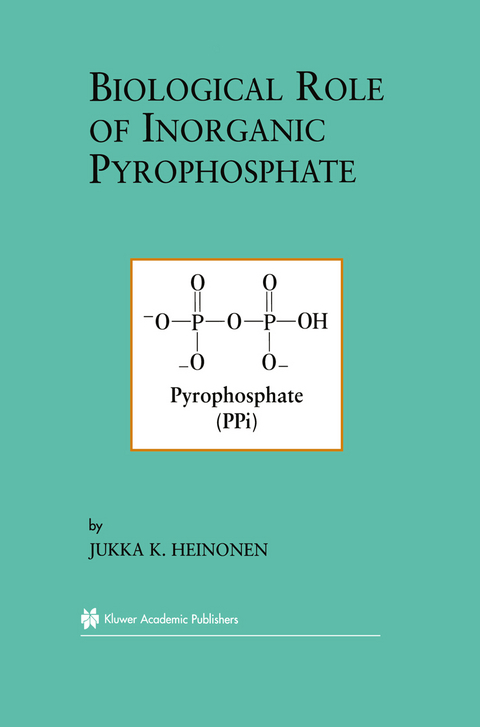
Biological Role of Inorganic Pyrophosphate
Springer (Verlag)
978-0-7923-7441-1 (ISBN)
Biological Role of Inorganic Pyrophosphate book is a unique and invaluable source of references (about 1120) and summarized data for professionals who study or plan to study the role of PPi in living systems. Many different branches of science (biochemistry, microbiology, bioenergetics, plant physiology, parasitology, evolution, orthopedics, rheumatology) have involvement with PPi. This book sums up available knowledge in one place and will help scientists cross disciplinary boundaries.
1. Biological Production of PPi.- 1.1. PPi producing reactions.- 1.2. Rate and amount of PPi production in biochemical reactions.- 2. Determination of PPi Concentration in Living Systems.- 2.1. Sampling and extraction.- 2.2. Assays.- 2.3. Conclusions.- 3. PPi Concentration in Biological Material.- 3.1. Bacteria.- 3.2. Lower eukaryotes.- 3.3. Plants.- 3.4. Animals.- 3.5. Humans.- 4. PPi As a Biochemical Energy Source.- 4.1. General considerations.- 4.2. Bacteria.- 4.3. Protists.- 4.4. Plants.- 4.5. Animals.- 4.6. Other eukaryotes.- 4.7. PPi as an energy source of primitive life.- 5. Regulatory Roles of PPi.- 5.1. PPi as a regulator of enzyme activity.- 5.2. Regulation of nucleic acid and protein synthesis.- 5.3. PPi and calcification.- 5.4. Effect of extracellular PPi.- 5.5. PPi and iron metabolism.- References.
| Erscheint lt. Verlag | 31.8.2001 |
|---|---|
| Zusatzinfo | XI, 250 p. |
| Verlagsort | Dordrecht |
| Sprache | englisch |
| Maße | 155 x 235 mm |
| Themenwelt | Naturwissenschaften ► Biologie ► Biochemie |
| ISBN-10 | 0-7923-7441-X / 079237441X |
| ISBN-13 | 978-0-7923-7441-1 / 9780792374411 |
| Zustand | Neuware |
| Informationen gemäß Produktsicherheitsverordnung (GPSR) | |
| Haben Sie eine Frage zum Produkt? |
aus dem Bereich


